From Coffee or Die By Noelle Wiehe
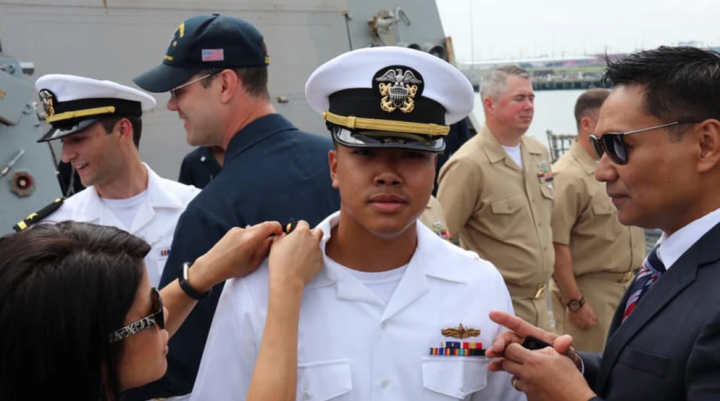
On June 12, 2019, on board the guided-missile destroyer Forrest Sherman, Navy surface warfare officer Leland Remias was promoted to lieutenant (junior grade). Now he’s becoming a real estate entrepreneur, thanks to a free program offered by the College of William & Mary in Virginia. US Navy photo.
Before Lt. Leland Remias left the Navy last summer, the surface warfare officer had done some cool things.
He served on board the guided-missile destroyer Forrest Sherman, protecting the aircraft carrier Harry S. Truman. And his warship even made a frigid blue nose patrol in late 2018.
“Our mission would be to protect and position off of the carrier as they were doing their flight operations,” Remias, 27, told Coffee or Die Magazine. “We would not only position off of them for their flight operations, but we would also protect them.”
But he wanted to knot the leadership skills he learned on board a warship at sea with a natural entrepreneurial zeal and an interest in real estate.
And he had the Post-9/11 GI Bill to fund his training to become what the US Small Business Administration calls a vetrepreneur — a former military member who starts and runs a successful company.
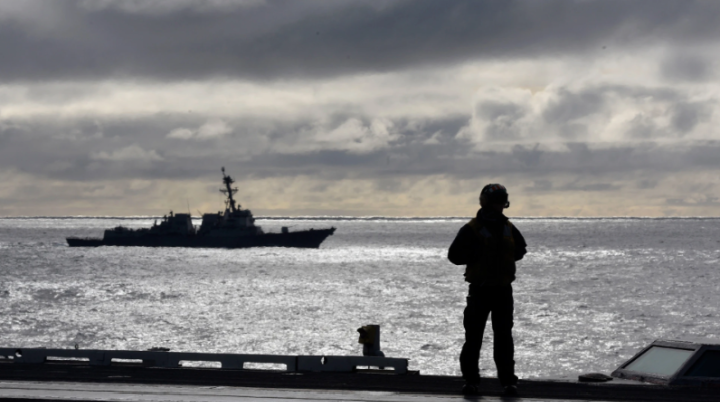
A sailor stands on the flight deck of the Nimitz-class aircraft carrier Harry S. Truman in the frigid North Atlantic on Sept. 18, 2018. US Navy photo by Mass Communication Specialist 2nd Class Anthony Flynn.
According to the SBA, military veterans own nearly 2 million businesses that employ more than 5.2 million Americans.
That payroll adds up to more than $232 billion based on $1.3 trillion in sales. They’re not only less likely than other Americans to be unemployed; they’re far more likely to hire others.
Historically, veterans have jumped at the chance to become entrepreneurs, but that’s changing. Entrepreneurship rates for millennial veterans who joined up after Sept. 11, 2001, began trending down, just as Vietnam era veterans started retiring from the workforce.
Which partly explains why a College of William & Mary guidance counselor pointed the former SWO to Will Gregory, the lead instructor in the Virginia school’s Veteran Entrepreneur Scholars program inside the Raymond A. Mason School of Business.
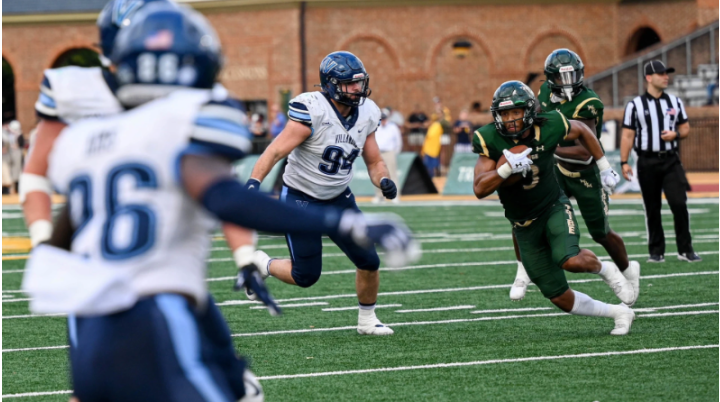
Tribe wide receiver Caylin Newton runs the football down the field during the College of William & Mary’s US Military Appreciation game in Williamsburg, Virginia, on Nov. 12, 2022. This was the 12th annual game that honors all military branches and their veterans. US Air Force photo by Airman 1st Class Mikaela Smith.
Gregory told Coffee or Die he was happy to take the former SWO on board because a “really good batch of folks” is the foundation of his program.
“We know that today, to make it into the military, to even qualify, you have to be the top fifth of Americans in your age bracket. Period,” Gregory said. “But on top of that, who better knows how to maintain a sense of humor when everything is going wrong around you? That is one of the greatest superpowers vets have.”
Free to military veterans, Gregory’s five-week boot camp introduces students to business innovation and entrepreneurship by immersing them in a detailed project. Students must brainstorm a startup idea, test the marketplace to see if it might work, and then take their first steps toward launching a venture.
“Vets are America’s greatest reservoir of untapped entrepreneurial talent,” Gregory said. “Our scholars hit the ground running, getting their hands dirty building impact-oriented ventures they can grow beyond this course.”
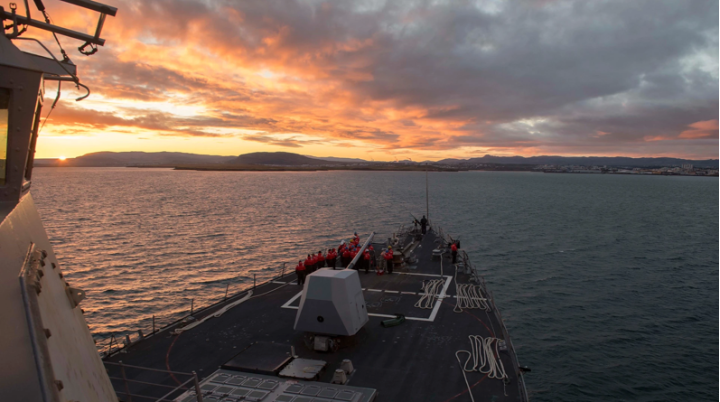
The guided-missile destroyer Forrest Sherman pulls into Reykjavik, Iceland, on Sept. 23, 2018. US Navy photo by Mass Communication Specialist Seaman Raymond Maddocks.
William & Mary isn’t the only school helping to turn vets into business owners.
St. Joseph’s University in Philadelphia offers its own Entrepreneurship Bootcamp for Veterans, in affiliation with Syracuse University’s Institute for Veterans and Military Families.
There are similar initiatives at Oklahoma State, Mississippi State, and the University of Florida, but William & Mary is located amid the largest concentrations of naval power on the planet and also near the sprawling Joint Base Langley–Eustis, which houses personnel from the Army, Air Force, and NASA.
Remias told Coffee or Die he’s three weeks into William & Mary’s program, and his startup idea involves an app he hopes will transform the way people buy and sell real estate.
“Going into entrepreneurship, I’m already seeing that I’m going to be putting in a lot of time,” said Remias, who studied biology as an undergraduate on a Reserve Officers’ Training Corps scholarship at Virginia Tech University before serving as a propulsion and electrical officer in the Navy.
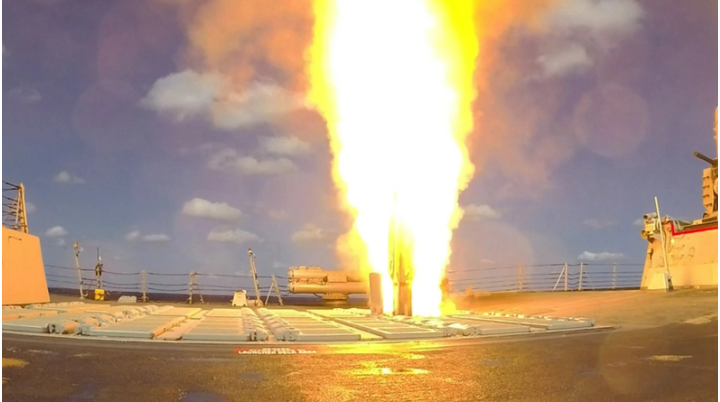
The guided-missile destroyer Forrest Sherman pulls into Reykjavik, Iceland, on Sept. 23, 2018. US Navy photo by Mass Communication Specialist Seaman Raymond Maddocks.
That’s a lot like the Navy, where watchstanding for long hours and leading sailors through arduous missions are hallmarks of the sea service.
“There is no other place where you can get the same quality and the same rigor of small unit leadership experience than in the military,” program director Gregory said.
After vets complete the program, they receive certificates from both the business school and the Veteran Startup Challenge.
“I get to wake up every day and feel excited about what I’m getting to learn,” Remias said.






